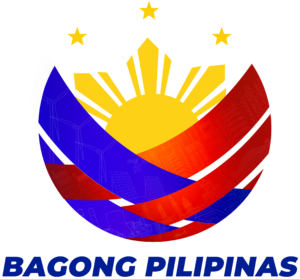THE PHILIPPINE BILL OF 1902: TURNING POINT IN PHILIPPINE LEGISLATION
By Chris Antonette Piedad-Pugay
From 1907 to 1916, the Philippine Assembly served as the lower house of the legislature with the Philippine Commission, headed by the American Governor-General, as the upper chamber. The inauguration of the Philippine Assembly on October 16, 1907 is a turning point in the country’s history, for its creation marked the commencement of Filipino participation in self- governance and a big leap towards self-determination.
For more than three hundred years, the Filipinos were ruled by the Spaniards and their occupation ended when Spain was defeated by the American Navy headed by Commodore George Dewey in the Battle of Manila Bay on May 1898. Gen. Emilio Aguinaldo, the leader of the revolutionary government in the Philippines was convinced by American Consul E. Spencer Pratt, to return to the Philippines from Hong Kong to resume the revolution and break the truce effected by the Pact of Biak-na-Bato. When Gen. Aguinaldo returned to the Philippines, he summoned the revolutionaries and ordered the resumption of the armed struggle against the Spanish government. Amidst the ongoing hostilities, Gen. Aguinaldo proclaimed Philippine Independence on 12 June 1898 at Kawit, Cavite. Soon enough, the relationship between the Americans and the Filipinos turned sour after the American government agreed to negotiate with the Spaniards that resulted to Spain’s surrender and the eventual signing of the Treaty of Paris that ceded the Philippines to the United States.
President William McKinley’s Policy of Benevolent Assimilation, aimed to prepare the Filipinos to direct their own government by having them under their tutelage. A military government was initially established in the Philippines as soon as the Treaty of Paris was signed and when the Filipino-American War erupted in February 1899. The three military generals who took charge of the islands from 1898 to 1901 were Gen. Wesley Merritt, Gen. Elwell Otis and Gen. Arthur MacArthur. In 1901, by virtue of the Spooner Amendment passed by the US Congress on 3 March 1901, the military rule in the Philippines ended paving way to the establishment and inauguration of a civil government with William H. Taft as the first civil governor. The civil government named the Philippine Commission as sole lawmaking body in the Philippine islands from 1901 to 1907, and eventually acted as the upper house from 1907 to 1916 until the time the Jones Law was passed on August 1916, that gave the Filipinos the opportunity to control both legislative houses.
The Philippine Bill of 1902 is one of the most important decrees enacted by the American government in the Philippines. Entitled “An Act Temporarily to Provide for the Administration of the Affairs of Civil Government in the Philippine Islands, and for Other Purposes,” this law contained two important provisions that strengthen both the civil and human rights of the Filipino people, and bestowed on them the privilege of legislation.
Also known as Cooper Act, it provided a Bill of Rights for the Filipinos that protected their rights: to live, to acquire property, to practice their religion, to be subjected to due process, to exercise their obligations, to enjoy compensations due to them, and freedom of expression. But the most important element contained in the bill was its clauses that called for the creation of a lower legislative branch with elected Filipino representatives as legislators.
The bill also stated the American government’s readiness to call for a general election in the islands should insurrection cedes and complete peace is maintained as attested by the Philippine Commission. The decree mandates the US President to order the Philippine Commission to perform a census of the islands and make a detailed report about the population and matters about the people that may deemed by the Commission as necessary, while peace is being upheld. Two years after the publication of the result of the census, and upon the satisfaction of the Philippine Commission and the US President, a general election shall be called and the elected Filipinos, not less than fifty but not greater than one hundred in number, will comprise the Philippine Assembly—the body that will act as the lower house of the legislature in the Philippines.
The Filipinos became very cooperative with the promises offered by the bill. Peace was maintained, a census was conducted and after its publication, an election was held on 30 July 1907 and the assembly was convened and inaugurated on 16 October 1907 at the Manila Grand Opera House. The Nacionalista Party, espousing “immediate and complete independence” headed by Sergio Osmeña garnered the majority of the seats. The First Philippine Assembly is best remembered for its effort in reviving the issue of independence and for passing laws that improved the type of education enjoyed by the Filipinos.

